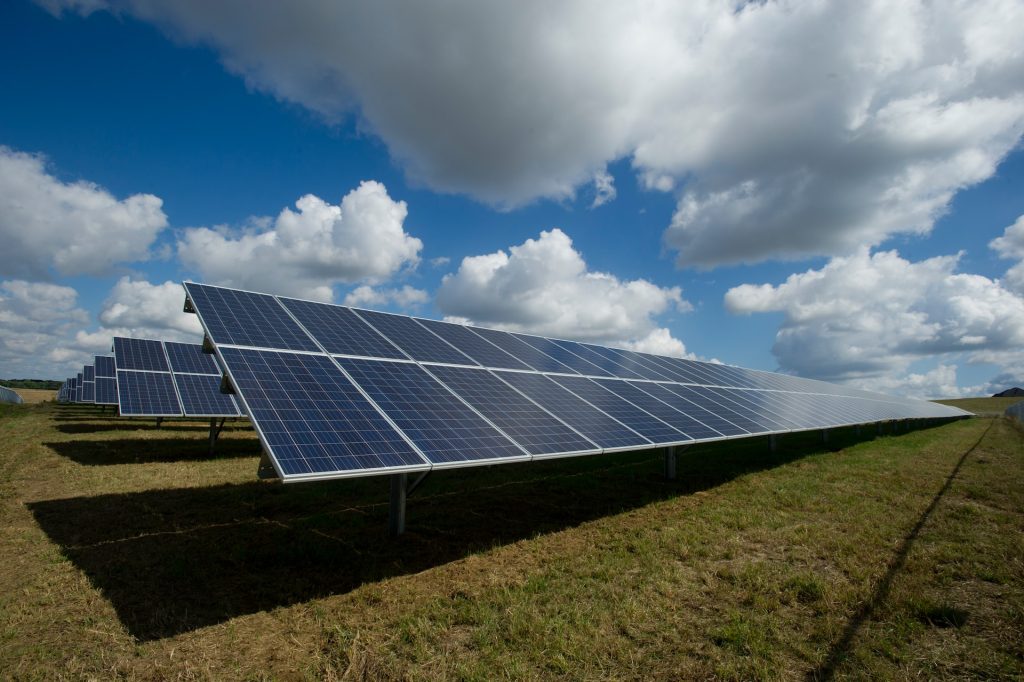Load-shedding: the controlled and deliberate reduction of electricity supply to manage demand. This has cast a long and ominous shadow over South Africa’s economic landscape. The impact of these power outages is not confined to just businesses and households; it extends its reach to road safety and economic growth as well. Here, we will explore the multifaceted consequences of load-shedding on businesses, and households, and the alarming rise in road accidents, shedding light on the interconnectedness of these challenges.
Load-shedding’s impact on Businesses
Operational Disruption
Load shedding disrupts businesses on a fundamental level. Manufacturing plants face disrupted production schedules, leading to delays in delivery and reduced productivity. The retail sector suffers from reduced foot traffic and sales during power cuts, impacting revenue streams and profitability. Service providers encounter difficulties in maintaining customer service standards and meeting deadlines. These are just a few business sectors that are affected directly by load-shedding. The sad reality is that every business is impacted negatively by the continuous load-shedding.
Financial Strain
Businesses are compelled to invest in backup power solutions like generators, UPS systems, and solar power. These initial investments can put a strain on a business in the beginning, but after the first initial investment businesses reap the rewards moving forward. And as part of the reward they will no longer feel the negative effects of load-shedding.
Technological Setbacks
The digital age has intertwined technology with business operations. Meaning, that the majority of businesses nowadays rely on technology and in turn will then rely on electricity to operate. Load-shedding disrupts computer systems, communication networks, and online transactions, undermining efficient operations and customer interactions. E-commerce platforms, reliant on continuous power for order processing and inventory management, face severe setbacks. And all due to the lack of electricity because of load-shedding.
Impact on Households

Quality of Life
Load shedding disrupts the daily lives of households significantly. Power outages leave people without lighting, heating, and cooling, affecting comfort and well-being. Households with electrical stoves also struggle to make dinner for their families. This causes these households to spend more on takeaways. Which pushes their costs for the month up by a significant amount. Most households have now invested in gas stoves because of this very problem. Vulnerable populations, such as the elderly and sick, are particularly affected. This is because they rely on consistent power for medical equipment and temperature control.
Education
Load shedding affects students’ ability to study effectively. Many require electricity for lighting and accessing digital learning resources. Educational inequalities are increasingly getting worse, as students with limited access to alternative power sources or study environments are at a disadvantage. Students have been seen studying in the dark with just a headlamp or a candle to provide light so that they may see. As this may be a solution, it cannot be a long-term one as this type of lighting can cause a strain on a person’s eyes and in turn will weaken them.
Health Concerns
Power outages disrupt medical equipment like oxygen concentrators and refrigerators for medication storage. Patients with chronic illnesses face heightened risks due to interrupted medical care, potentially leading to deteriorating health conditions. Thankfully, most electrical grids that either have clinics or hospitals, do not experience load-shedding for this very reason. However, power outages still affect these areas on occasion, but this could be detrimental to the patient’s health as well as some of their lives.
Impact on Road Safety
Load shedding’s impact extends beyond homes and businesses to the roads. The increased frequency of power outages has been linked to a rise in road accidents for several reasons:
- Traffic Lights Malfunction: Load shedding disrupts traffic signal systems, leading to confusion and chaos at intersections. This creates a higher risk of accidents, particularly during peak traffic hours.
- Reduced Visibility: Power outages often occur without warning, plunging roads into darkness. This reduced visibility increases the likelihood of accidents, especially in poorly lit areas.
- Road Infrastructure Strain: Load shedding can impact road maintenance schedules, affecting road quality. Potholes and deteriorating road conditions contribute to accidents, as drivers struggle to navigate safely.
The other downside is pointsmen don’t get dispatched to the areas where there is load-shedding because of the extensive number of areas experiencing outages, there is an insufficient availability of pointsmen to be deployed to various regions. This adds to the risk of accidents happening as there is no one to control the flow of traffic and make sure people abide by the road rules during these times.
Economic Disruption and Productivity Loss due to load-shedding
The economic impact of load shedding is profound, posing significant challenges to South Africa’s growth prospects. Load shedding disrupts the normal functioning of businesses, resulting in a ripple effect that reverberates through the economy:
Reduced Productivity
Industries that rely heavily on electricity for manufacturing, production, and service provision experience disruptions in their operations. Consistent load shedding leads to reduced productivity, as production schedules are frequently interrupted, leading to delays in meeting orders and targets.
Diverting budgets to invest in other power supplies
Businesses are compelled to invest in backup power solutions, as to keep productivity at a point so they can still meet their targets every month.
Investor Confidence
Persistent load-shedding chips away at investor confidence in South Africa’s economic stability. Companies may be hesitant to invest in an environment where the reliability of essential infrastructure is uncertain. This hesitancy can lead to reduced foreign direct investment, which is crucial for economic growth.
The strain on Small and Medium Enterprises (SMEs)

Load-shedding affects small and medium enterprises (SMEs) more than larger businesses, and these SMEs make up a significant part of South Africa’s business environment:
Financial Stress
SMEs often lack the financial resilience to weather the economic strain caused by load-shedding. The additional costs of backup power solutions and reduced revenues due to disrupted operations can push these businesses to the brink. And there is unfortunately no way around this financial strain if they want to keep their productivity up to meet targets and deadlines.
Limited Innovation and Expansion
SMEs struggling with load-shedding are likely to allocate more resources towards coping with power-related challenges rather than investing in innovation, expansion, or diversification. This hampers the potential for growth and economic diversification. However, when the initial investment is made into a renewable energy supply (such as solar power) these SMEs no longer feel the pressure caused by load-shedding.
Employment Effects
SMEs are major employers in South Africa. These businesses, however, deal with the setbacks caused by load-shedding, and their capacity to hire and keep employees is weakened, adding to concerns about employment stability. This contributes to the rise of the unemployment rate.
Diminished Economic Growth Prospects
Load-shedding’s cumulative impact significantly slows down South Africa’s economic growth trajectory:
1. Reduced GDP (Gross Domestic Product) Growth:
The disruption of key sectors, coupled with decreased investor confidence, ultimately leads to reduced GDP growth. This slowdown affects South Africa’s overall economic performance and its ability to generate jobs and income. This is causing the economy to continue to make a downward spiral with no visible end in sight which makes these concerns more and more apparent every day.
2. Investment Deterrence:
Consistent load-shedding discourages both domestic and foreign investors from committing to long-term projects. This deters capital inflows and restricts the development of vital industries.
3. Impaired Infrastructure Development:
Load-shedding places a strain on resources that could otherwise be used to develop essential infrastructure projects. This includes energy generation and transmission systems, transportation networks, and technological advancements that underpin economic growth.
Renewable energy sources could be our saviour in the midst of load-shedding

South Africa finds itself at a crossroads, grappling with the dual challenges of load-shedding and the urgent need for sustainable energy solutions. As the country’s energy grid strains under the weight of demand, renewable energy sources have emerged as a beacon of hope. What’s even more promising is that many of these sources are accessible to the masses and are not unreasonably priced.
The load-shedding crisis presents South Africa with an opportunity to pivot towards a cleaner, more sustainable energy future. Embracing renewable energy sources not only addresses immediate energy challenges but also positions the country as a global leader in sustainability. As the sun rises on a new era of energy, South Africa can harness the power of the wind, sun, and other renewable resources to light up a brighter, more resilient future for all its citizens.
Conclusion
Load-shedding’s adverse impact on South Africa’s economy is not merely a temporary setback but a substantial hurdle to sustained growth, and its far-reaching impact on businesses, households, and road safety underscores the urgency of finding sustainable solutions. The South African government and stakeholders are currently working towards diversifying the energy mix and investing in infrastructure. However, there is a common agreement that these efforts require a more concerted and vigorous approach to allow significant results. Minimizing the disruptions caused by load-shedding is essential not only for economic growth and public well-being but also for ensuring safer roads and a better quality of life for all South Africans. Addressing the interconnected challenges posed by load shedding requires collaborative efforts and strategic investments in the nation’s energy and transportation sectors. A resilient and reliable energy supply is essential for unlocking South Africa’s economic potential and ensuring a brighter future for its citizens.

